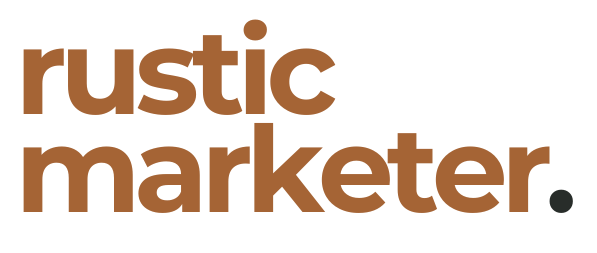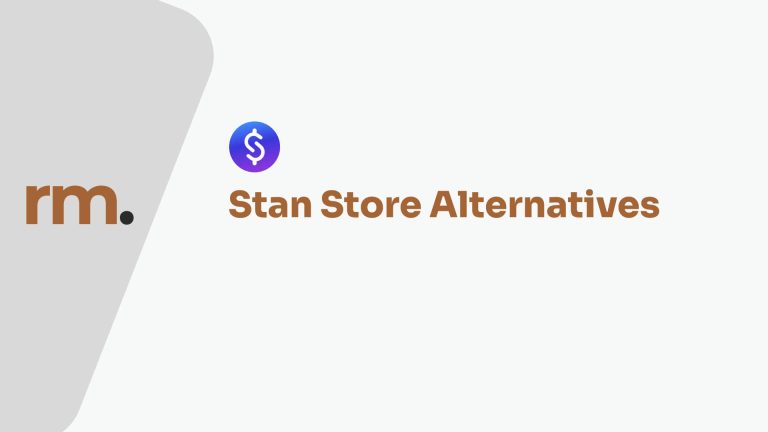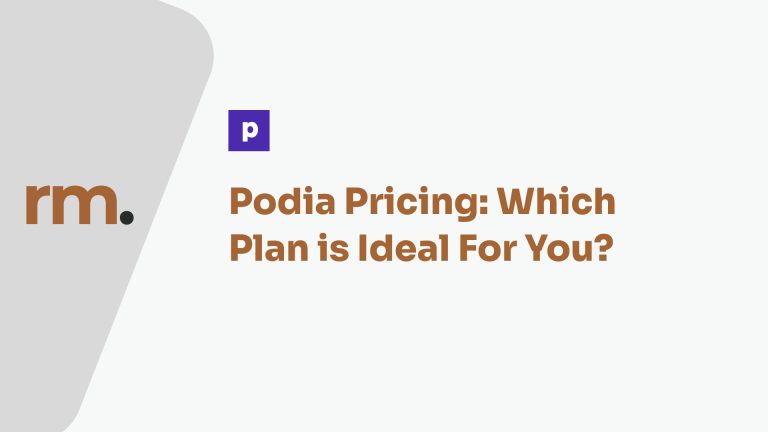In this article, you’ll discover the best Gumroad alternatives and the unique features of each platform. Whether you’re a blogger, artist, or part of a community, this post will provide you with a clearer picture of your next steps in selling digital or physical products. So let’s dive right in.
Selling digital products is a great way to get started in the world of ecommerce. With no shipping or storage required, digital sales offer low overhead and almost completely passive income.
Gumroad is a popular platform that allows creators to sell their digital products directly to their audience. However, a pricing change in 2022 left many creators searching for alternatives.
Key Takeaways
- Gumroad is a popular platform for creators to sell their digital products, but a pricing change in 2022 left many searching for alternatives.
- There are several Gumroad alternatives that offer unique features, such as Mighty Networks for building a community, WooCommerce for integrating with WordPress, and Etsy for selling physical products.
- Whether you’re a blogger, artist, or part of a community, there is a Gumroad alternative that can meet your needs.
These Gumroad alternatives offer a range of features and pricing options, so you’re sure to find one that meets your needs. We’ll go into more detail on each of these options in the remainder of the post, so keep reading to find out which one is the best fit for you.
1. Mighty Networks
If you want to sell memberships, courses, and build a community, Mighty Networks is one of the best alternative to Gumroad. Mighty Networks is a powerful all-in-one community membership and course builder that has been ranked as the number one community management software by G2. It is a great platform to bring members together and build a profitable digital business.
Here are some key highlights of Mighty Networks:
- The average Mighty Network charges its members $27-$33 every month ($240-$319 per member/year), and 90% of the networks that charge for access make sales of courses, events, coaching, etc. on top of the membership fee.
- Mighty Networks comes with customizable Spaces that can blend a built-in community forum, member profiles, chat and messaging, custom discovery sections, native live streaming and video, plus event and Zoom integration.
- You have a ton of flexibility for selling memberships, tiers and bundles, in 135 different currencies or even monetized with token gating.
- Your Mighty Network comes with an app for every device, and we offer totally branded apps under your brand for established businesses.
- Mighty Networks has flat fees! Unlike Gumroad, which takes 10% of your revenue, Mighty Networks charges a $99 network fee for $9,000 in course sales.
Mighty Networks is a powerful community engine that gives you an amazing space to bring members together and build a profitable digital business. It has customizable Spaces, flexible membership options, and flat fees, making it the best place to build a profitable digital business without needing another software option.
2. Patreon
Patreon is a platform that allows creators to monetize their following. It’s known for its patronage model, where patrons can commit to supporting a creator they love. This means that you can monetize anything on Patreon as long as you can find enough people willing to support you.
Patreon has evolved over time to include more than just donations. Creators can set up tiered levels for supporters with rewards for each level. These rewards can be appearances in an art project, extra content, time with the creator, or merch. There are a lot of different ways to be successful on Patreon.
One of the downsides of Patreon is that it charges a percentage-based fee. This means that the more you make, the more it will cost you. With up to 12% of the money you earn going to Patreon, it can be expensive for creators who are making a lot of sales.
Despite this, Patreon is still a flexible platform that lets you choose your own adventure for monetization. It’s a good alternative to Gumroad and has a lot of features that make it a great platform for creators.
Patreon Features
- Hosted creator page
- Communication tools
- Membership tiers
- Special offer tools
- Merch options
- App integrations
Patreon Cost
Patreon takes 5-12% of what you earn, which can add up quickly. If you sold $10,000 worth of memberships on Patreon, you’d pay them anywhere from $500-$1200 in fees.
Who is Patreon for?
Patreon is best for creators who want to stick to a patronage model or who want to create small memberships. It’s great for monetizing a small following, but with the payment structure, you get penalized for growing.
Pros and Cons of Patreon
Pros:
- Accessible and easy to get started
- Well-recognized platform
- Merch integrations
- It works for a patronage-only model (you don’t HAVE to sell things)
- Easy to use
Cons:
- High transaction fees (penalized for growth)
- No opportunity for courses, real community, etc.
- Missing events, live streams, etc.
3. Stan Store
If you’re a creator looking for a platform to sell your digital products and services, Stan Store might be the perfect solution for you. With Stan, you can set up your store in just a few minutes and start making money immediately.
You get a 14-day free trial to get started with Stan Store. Once you’ve set up your store, you’ll have access to a range of powerful tools and features that can help you turn your followers into paying customers.
Stan offers everything you need to sell your products and services in one place. You can access analytics to track your sales numbers and customer engagement levels in real-time. You can also set up campaigns to promote your products and services to your audience.
In addition to these features, Stan also offers an integrated payment system, so you can easily accept payments from your customers. They offer a much wider range of monetization options which makes it a great contender for Gumroad alternatives.
To get started with Stan, all you need to do is create an engaging product or service that your audience will love. Once you’ve done that, you can set up your store and start using Stan’s powerful tools and features to turn your followers into paying customers.
4. Sellfy
Sellfy is a highly recommended platform for creators who want to sell digital downloads, physical products, and subscriptions. In addition to selling digital products, artists can print their designs on items like t-shirts, hats, or coffee mugs using Sellfy’s print-on-demand service. This service easily handles the printing and shipping, so creators don’t have to worry about those aspects.
Sellfy is also a popular platform among creators who sell subscriptions, online courses, or on-demand video streaming. The platform offers discount codes, pixel tracking, upsells, and email marketing to help creators grow their business. Sellfy also has security features that prevent downloaded content from being shared, which is a major plus for creators who want to protect their intellectual property.
One of the best things about Sellfy is that there is a 14-day free trial for creators who want to give it a try. After the free trial, creators can choose between three subscription packages: $19, $49, and $99 per month. However, it’s worth noting that subscriptions must be paid for two years in advance, which means creators will have to pay $456, $1,176, or $2,376 when they sign up.
Sellfy has several pros, including its 14-day free trial, security features that prevent content sharing, email marketing feature, print-on-demand service, and money-back guarantee. However, there are also some cons to consider, such as the fact that subscriptions must be paid for two years in advance, there are few customization options, and there is no free plan available.
5. WooCommerce
If you have a WordPress site, WooCommerce is an open-source ecommerce platform that can easily add ecommerce functionality to your website. Though it takes a bit of effort to set up initially, once done, it can be a much stronger in terms of its features making it a great addition to this list of Gumroad alternatives.
WooCommerce is free to use and helps you create beautiful storefronts and landing pages. You can quickly set up a store and start accepting payments with themes and extensions. You can also customize your stores with builders like Elementor or with a professional designer.
However, WooCommerce only works on websites built with WordPress. While WooCommerce is free to use, you need to pay extra for premium extensions and themes.
6. MemberPress
If you are a creator offering online courses, digital downloads or subscriptions, MemberPress is a WordPress plugin that might be worth considering. This plugin offers a drag-and-drop course builder that makes putting together an online course easy and efficient. Additionally, it features a “drip content” feature that releases new content at specified intervals or when subscribers reach certain milestones.
MemberPress integrates seamlessly with other popular WordPress plugins like OptinMonster and does not charge any transaction fees. However, it is important to note that subscriptions must be paid a year in advance and there is no option to pay monthly.
The pricing plans for MemberPress are as follows: a Basic package costs $179.50 per year, a Plus package costs $299.50 per year, and a Pro package costs $399.50 per year. Unfortunately, there is no free trial available.
Pros:
- Drip content feature
- Course builder
- Seamless integration with other WordPress plugins
- No transaction fees
- 14-day money-back guarantee
Cons:
- Subscriptions must be paid a year in advance
- Only works on WordPress websites
- No free trial
7. Etsy
Etsy is a popular online marketplace that allows creators to sell their physical and digital art. While it is known for its physical products, Etsy also provides a platform for sellers to offer downloadable products like printables. This can be a great option for artists who want to share their work without worrying about shipping costs.
However, Etsy charges a transaction fee of 6.5% per purchase, which can add up. Despite this, Etsy remains a strong alternative to Gumroad as it has millions of buyers who are always on the lookout for unique and interesting products.
Using Etsy is free, but sellers will need to pay the 6.5% transaction fee for each purchase made. Etsy is best suited for creators who want to sell their work, especially for those who are just starting and do not have a following or marketing skills. If you already have an audience or want to learn how to market, building on Shopify may be a better option.
One of the advantages of using Etsy is that it is a marketplace platform with a large user base. It is also a familiar brand that is known for its visual and creative content. Additionally, Etsy takes care of payments, different currencies, and other logistics, making it easier for sellers to focus on creating and promoting their products.
However, there are also some limitations to using Etsy. The 6.5% transaction fee can be a disadvantage, and there is a lot of competition on the platform, making it difficult for sellers to get on the first page of search results and make sales. Furthermore, there are limited options for sellers to build their own brand and following on the platform.
Overall, Etsy is a great option for creators who want to sell their physical and digital art, but it may not be the best fit for everyone. It is important to weigh the pros and cons and consider your own goals and needs before deciding whether or not to use Etsy as a platform to sell your creations.
8. Shopify
Shopify is a popular ecommerce platform that makes it easy for creators to build an online store. The platform offers a drag-and-drop user interface and a large app library, making it a great choice for merchants who are new to selling digital products.
One of the biggest advantages of using Shopify is its mobile app, which allows creators to monitor their sales on the go. Additionally, the platform offers 24-hour support, so creators can get help whenever they need it.
Shopify store pages load quickly and are optimized for any device, but creators who do not use the platform’s internal payment system may be subject to additional fees.
Shopify does not offer a free subscription package, but creators can try out the platform for $1 per month for three months. If they like what they see, they can choose from three subscription packages that cost $39, $105, and $399 per month.
Pros:
- Huge app library
- Integrated payment gateway
- 24-hour support
- Drag-and-drop user interface
- $1 per month trial offer
Cons:
- No free subscription package
- Fees for using outside payment gateways
- Limited free themes to choose from
9. Podia
Podia is an all-in-one creator platform and is another great addition to the list of Gumroad alternatives. It offers a variety of features for selling digital work, running a brand community, and offering services like coaching and mentorship. With no transaction fees on paid plans, Podia provides a sleek course builder, unlimited sales pages, and advanced community features, allowing you to communicate with your audience in one place.
Whether you want to teach virtual lessons, run a membership community, or create a course on any topic, Podia allows you to build, sell, market, and manage your entire creative business. You can sell unlimited courses, digital downloads, and coaching sessions, and also get sophisticated business features like affiliate functionality, email marketing, product bundles, and upsells.
Overall, Podia is a comprehensive platform that offers a lot of flexibility and functionality for creators who want to sell their digital products and services.
10. Lemon Squeezy
Lemon Squeezy is a popular ecommerce platform that specializes in selling software and digital downloads. One of the key features that sets Lemon Squeezy apart from other ecommerce platforms is the license key that is issued during the checkout process. This ensures that only paying customers can access the software they have purchased.
Lemon Squeezy is also a great option for international sellers, as it supports 15 payment methods and makes bank payouts in 79 countries. Additionally, Lemon Squeezy offers a range of marketing tools, including email features for users with less than 500 subscribers, discount codes, and real-time analytics.
Another advantage of using Lemon Squeezy is that there are no monthly subscription fees. Instead, the platform charges a 5% transaction fee and collects 50 cents on every sale. You can also generate invoices for your sales.
However, there are some drawbacks to using Lemon Squeezy. For example, the platform only supports digital products, and payouts are made every two weeks. Despite these limitations, Lemon Squeezy remains a popular choice for sellers looking to sell software and digital downloads online.
11. Payhip
If you’re looking for a platform that offers a seamless checkout process, Payhip might be the right choice for you. Payhip allows you to sell digital products or online courses that require one-time or recurring payments, making it a viable platform for hosting paid membership programs.
One of the advantages of Payhip is that it allows you to link your products to blogs, websites, and social media pages, making it easy to reach a wider audience. Payhip does not have its own payment system, but it supports debit or credit card payments and PayPal.
Payhip caters to creators who like to network with an affiliate program and coupons and social discounts that reward tweets and likes. There is also a free forever subscription available for sellers on a budget. However, creators who opt for the free plan must pay a 5% transaction fee every time they make a sale.
If you want to reduce the transaction fee, you can choose the Plus plan for $29 per month, which reduces the transaction fee to 2%. If you’re willing to pay $99 per month, you can subscribe to the Pro plan, which waives the transaction fee altogether.
Payhip is great for networkers and offers a fast and easy checkout process. All features are included in all plans, so you don’t have to worry about missing out on any features. However, it does have some cons such as transaction fees on free and Plus plans, few sales tools, and not many customization options.
Overall, Payhip is a solid option for creators who want a platform with a seamless checkout process and an affiliate program.
Why Consider Gumroad Alternatives?
While Gumroad is a popular platform for selling digital products, there are several reasons why you might want to consider alternatives. For example, if you’re looking to expand into physical products or want more control over your storefront, platforms like WooCommerce, Shopify, or Squarespace may be better suited to your needs. Alternatively, if you don’t want to manage your own website, you could consider selling on existing marketplaces like Etsy or Amazon.
Another reason to explore Gumroad alternatives is the recent price hikes, which may not be feasible for businesses just starting out. Whatever your specific business scenario, there are plenty of options available to explore beyond Gumroad.
Which Gumroad alternatives have the best features?
The best features of Gumroad alternatives depend on your individual needs. Shopify offers a range of powerful ecommerce solutions, while SendOwl is more focused on digital products. Selz is another great alternative that gives you easy-to-customize online stores with no coding necessary. Some alternatives like FastSpring and Podia offer pay-what-you-want pricing, while others like SamCart and Payhip offer paid plans with various pricing tiers.
Why sell both digital and physical products?
Selling both digital and physical products can be beneficial for your business as it expands reach and diversifies your income streams. Selling physical products may require more resources and storage space, but your customers get to experience a tangible item related to your brand. Digital products often offer a lower cost of entry due to their non-physical nature and are an excellent, low-risk starting point for those just getting into ecommerce.
How do the pricing models compare between Gumroad and its alternatives?
Pricing models vary significantly among Gumroad alternatives. Shopify has subscription plans that range from $39 to $399 per month, while Stripe’s fees are based on transaction fees and vary accordingly. FastSpring and SendOwl offer flat-rate fee plans, while Selz has a simple pricing plan that charges you per transaction. Some alternatives like Podia and Payhip offer pay-what-you-want pricing, which can be a good option for budget-conscious sellers.
Does Gumroad offer any advantages over its alternatives?
For all its quirks, Gumroad is still one of the top digital download platforms and offers an easy-to-use interface for setting up and selling assets. It also integrates with a growing list of third-party services. However, some alternatives like Selz and SendOwl offer more features specifically geared towards digital products, such as automatic delivery and customizable checkout pages.
What should I consider when choosing an alternative to Gumroad?
When selecting an alternative to Gumroad, think about your particular needs, what you’d like to sell and the future goals of your business. Then, try to find a platform that aligns best with these metrics. Additionally, consider how easily you’ll be able to integrate with other services or products you want to use in conjunction with Gumroad. Some other factors to consider include transaction fees, payment options, and payment methods offered by the platform.
What are some alternatives to Gumroad for selling digital products?
Some alternatives to Gumroad for selling digital products include Shopify, SendOwl, Selz, FastSpring, Podia, SamCart, and Payhip. Each platform has its own unique set of features and pricing models, so it’s important to evaluate them based on your specific needs.
Final Thoughts
If you’re a Gumroad user, the recent pricing change may have left you feeling uncertain about the future. However, there are many other ecommerce platforms available that can help you sell your digital products.
By exploring other options, you can find a platform that meets your needs and budget. Additionally, if you’re looking to cut costs and streamline your inventory and order management processes, Linnworks may be a helpful tool to consider. Don’t be afraid to explore your options and find the platform that works best for you.



